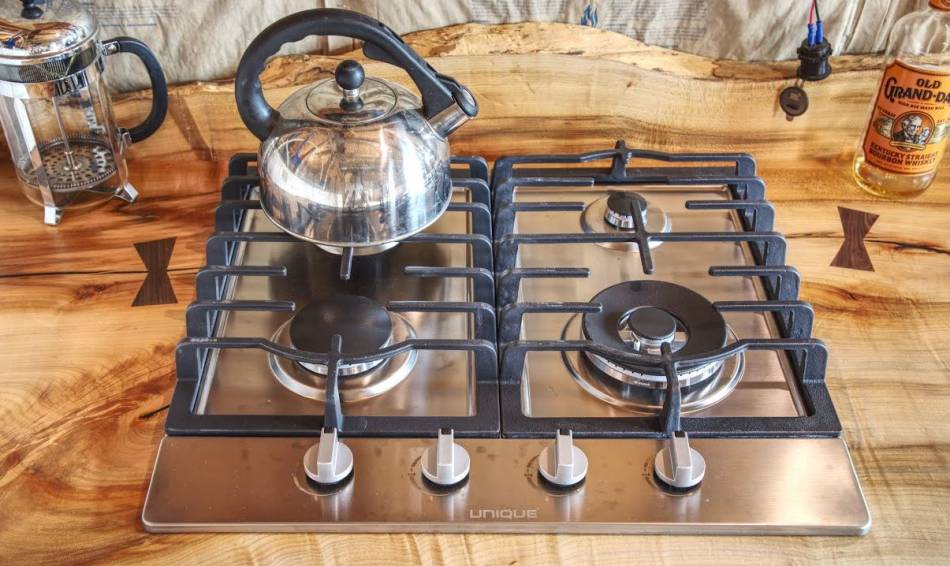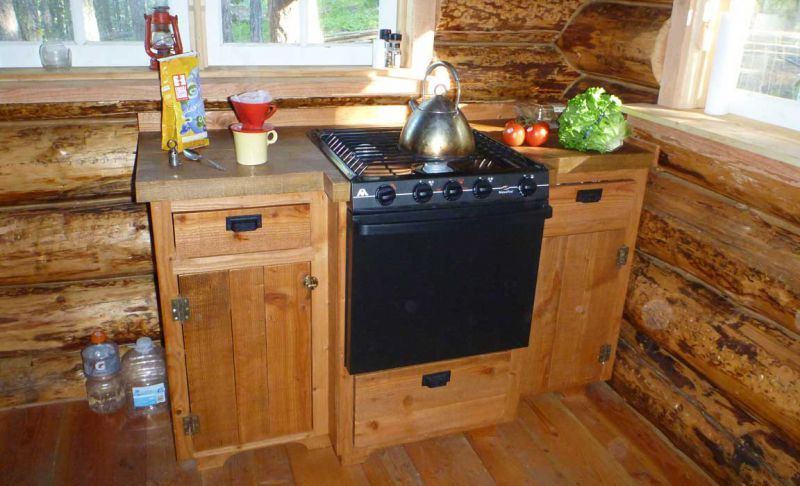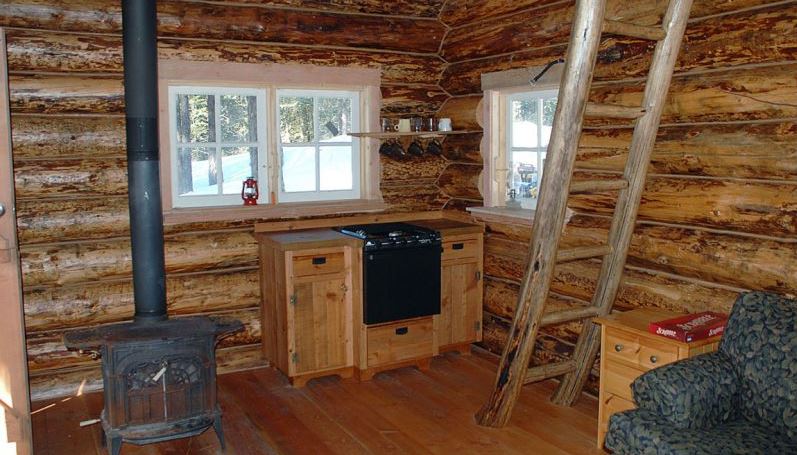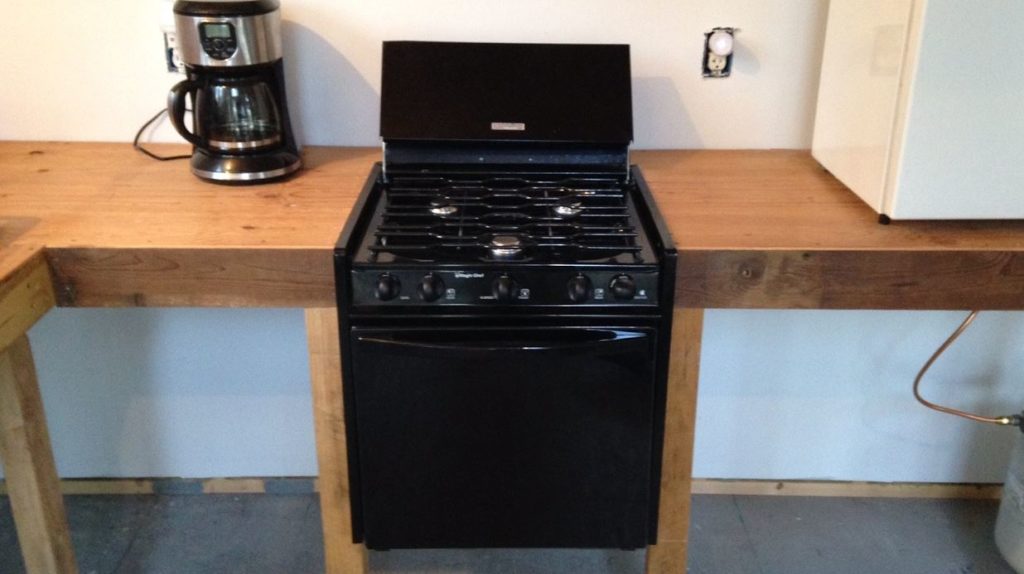Is It Safe to Use a Propane Stove In A Cabin?

Propane stoves can be dangerous if they are not used properly. That is why you must be extremely careful when using them in small, closed spaces such as a cabin. One of the leading causes of poisoning deaths in the US is carbon monoxide poisoning. In this article, we’ll talk about using a propane stove in a cabin and how to do it properly. So, let’s start!
Is it Safe to Use a Propane Stove in A Cabin? Yes, it’s safe to use a propane stove in a cabin if there is a good ventilation system. However, when using a propane stove indoors, safety guidelines must be followed, such as proper ventilation. Building codes require an exhaust fan in the room where the propane stove is placed.
Today, propane stoves are one of the key applications that every household should have, even a cabin. But since they contain and work with carbon monoxide, they are very dangerous if they are not handled properly. In the following, we will go a little deeper into this topic.
Table of Contents
How to Use a Propane Stove In A Cabin?

If you are not sure whether you should get an indoor propane stove, first check your Ul (Underwriters Laboratories) certification. If the stove has one of these, then it is safe to use indoors. Many stoves and similar products will not have this sticker, so make sure your model has one.
Propane stoves are dangerous to use indoors mainly because of Carbon Monoxide. Some designs don’t produce too much of this gas and are, therefore, safer to use. For example, camp stoves have the UL certification and can be used indoors, unlike propane grills that produce a lot of smoke and carbon monoxide and are not as safe to use inside closed spaces.
To avoid an accumulation of harmful gases, cook in an area with a lot of fresh air and ventilation. Open windows or put a hood over your gas stove. Some gas stoves have a hood that can help with the carbon monoxide in closed spaces. This especially comes in handy during winter when it is too cold to open windows.
It is important to keep the stoves clean so you don’t get the grease or food dripping onto the burners and causing smoke. This also makes them dangerous to use indoors, so do not let that dirt accumulate and cause problems.
Another thing to keep in mind is using the stove to make quick meals. Even if a stove has the UL certification, they are not designed for hours of cooking; this makes gas accumulate even more.
For those who own an RV, be sure to read How Much Propane Does an RV Fridge Use?
Things To Pay Attention To When Using A Propane Stove

Before using a propane stove in a cabin, there are a couple of things to remember for your safety. Look for the following things:
1. Underwriters Laboratories (UL) Certification Is Required
Ul certifications are important; the organization Underwriters Laboratories uses a lot of testing to make products as safe as possible. They are considered one of the best companies that guarantee the safety of many products, so it would be wise to check out for their certification to avoid potentially dangerous products.
Finding the UL certification should not be too hard because many products have their logo. This company claims to be a non-profit organization dedicated to public safety. It is very important to find their logo to ensure you find the best product.
2. The Danger Of Carbon Monoxide
The most dangerous thing about propane stoves in a cabin is the emission of Carbon Monoxide (CO) because it is odorless and colorless, it causes 25% of deaths relating to propane stoves, and this is something to always keep in mind when using these stoves.
This gas is emitted when propane gas is not completely combusted. In order for propane to burn, you need air, fuel, and ignition. Under the right circumstances, it will burn completely, and it releases little carbon monoxide gas into the air. If used properly, propane stoves are not dangerous. However, if the ratio of the three things is not quite right, you risk breathing in CO.
How Much Carbon Monoxide A Propane Stove Release?
It is important to note that every stove releases small amounts of CO into the air. This depends on the model you have, quality, maintenance, etc. If you are unsure about these things, simply look for UL certification to avoid confusion.
If the stove works properly, it shouldn’t emit dangerous amounts of Carbon Monoxide. However, you should always keep in mind the potential risk and let in fresh air indoors to air out the CO gas. You can always test it by using CO meters or a CO detector just to be safe.
3. Make Sure To Have Proper Airflow
If you are using a propane stove in a cabin, always let a lot of fresh air inside and keep the smoke to a minimum. To reduce smoke, keep the stove clean and do not burn your food on it. If you cannot open windows, you can use an extractor fan to reduce harmful by-products of the stove.
Benefits Of Using Propane Stove In A Cabin

Anyone who owns a cabin knows how important it is to have a propane stove. Here are some reasons why people are using a propane stove inside their cabins:
- Propane Stoves Are Eco Friendly
Electric stoves use a lot of electricity, somewhere in the range of 2000 to 4000 watts, and mostly operate around the range of 3000 watts on medium to high settings. When we compare them to propane stoves, they are much more eco-friendly. Portable stoves are easy to use outdoors or in cabins, and because of these reasons, there is a higher demand for gas stoves than electric ones.
- Living Off-The-Grid
Some individuals want to be independent of energy sources provided by the government. In other words, they want to live “off the grid”. Some grow their own food and install solar panels, and some decided to use propane stoves to achieve this goal of self-sufficiency.
However, you may live in a place where you cannot attach your cabin to the government’s power grid. If you cannot get electricity for heat or cooking, a portable propane stove is one of the solutions to this problem. Camping stoves, for example, are made to be used outdoors with little to no requirements for additional items to utilize, so they can be used easily indoors as well.
- Easy To Carry And Use
Portable stoves are easy to use and carry because they are small and their design is simplistic. They do exactly what you need them to do; cook food. There is no real argument against using them except for the safety issues when it comes to using them indoors. However, after reading this article, I trust you are already aware of the risks and how to properly take care when using them indoors.
- Propane Stoves Can Be Used Immediately
You will notice that propane stoves heat up immediately, which means you can start cooking as soon as you start the stove, and the temperature is easy to control. On the other hand, electric ones need time to heat up to the same temperature, and you do not possess the same control of the heat. This is why others might want to use propane stoves.
To conclude, propane stoves are easy to use however they present certain health risks that you must take into account while using them indoors. If you take proper care of your gas stove, they are avoidable, and you can enjoy the benefits safely.
If you want to learn more about Log Cabins, be sure to read the Pros And Cons Of Log Cabin Homes.
FAQ: People Also Ask
Can Propane Fire Pit Be Used Indoors?
The propane fire pits are not that practical. They are more often used as home decor than anything else. Still, it is a bad idea to use them indoors. A small propane stove can prove to be a better choice than having a large open flame can be dangerous for small spaces. No matter how pretty they look in your home, there are better choices.
Can You Use a Propane to Heat a House?
You can, but this is a very bad idea. Do not use propane ovens to warm your house, even if there are no other heat sources. The risk is too high so keep your wits about you. Furthermore, never keep the propane stove on for too long or leave it without supervision, especially if you use it as a heat source. The risks for your health mentioned above are quite real and serious, and you should keep them in mind if you ever use a propane stove in closed spaces.
What Symptoms Can Carbon Monoxide Cause?
You should be aware of some of the symptoms of CO poisoning, so here is a list of possible ones:
- Weakness
- Blurred Vision
- Dizziness
- Labored Breathing
- Vomiting
- Headache
- Loss of Consciousness
These symptoms can worsen depending on how long you have been exposed to the gas. The body may become so weak one can barely do anything to save themselves. CO is so dangerous because people are mostly not aware of leakage until it’s too late.
Is Co Detector Necessary To Have?
Be sure to install a CO detector if you are going to use gas or propane in your cabin. It is as important as a smoke detector because it can save your life. UL-approved detectors are the most trustworthy and should be installed approximately 15 feet from a stove read the manual for proper installation of your particular model.
Final Thoughts
Using a propane stove in a cabin is not a smart idea. However, sometimes it is necessary if you don’t have any other option. If you follow the guidelines we’ve explained in this article, you will have no problem and be safe. Carbon monoxide is a dangerous gas, and must be used with caution. We also advise you to install a CO detector in your cabin to protect yourself further.

Can you be more specific about the content of your article? After reading it, I still have some doubts. Hope you can help me. https://www.binance.info/ur/join?ref=V2H9AFPY